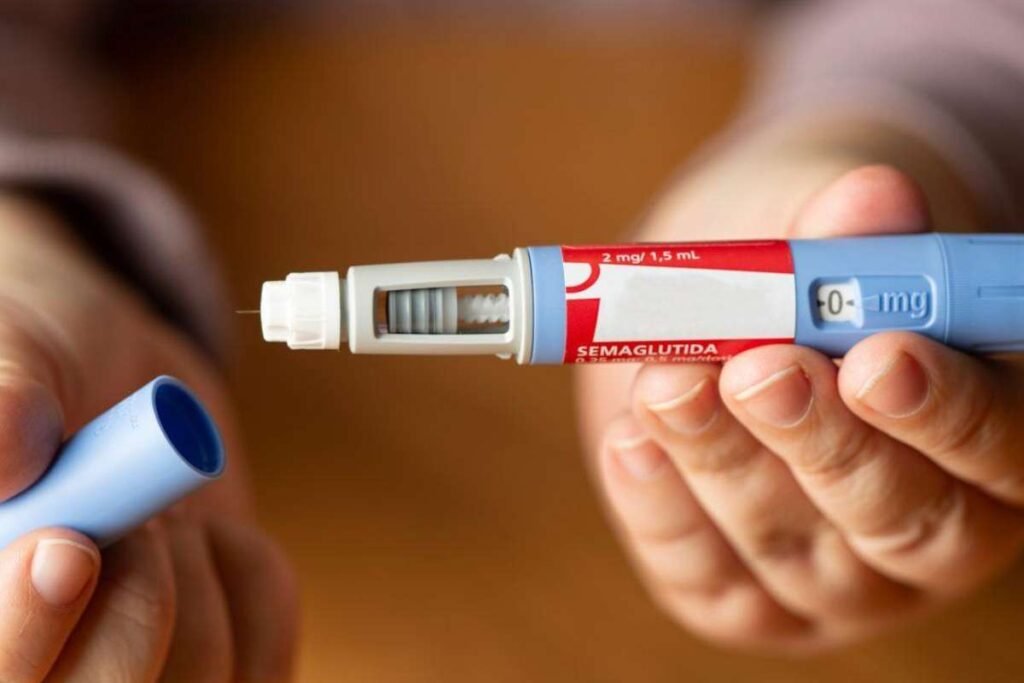Health authorities in the UK have launched a formal investigation into the potential side effects of widely used Weight loss and diabetes medications following a surge in reports of pancreas-related complications Yellow Card Biobank . Nearly 400 patients have reported cases of acute pancreatitis—some of them fatal—after using GLP-1 (glucagon-like peptide-1 receptor agonists) drugs such as Mounjaro, Wegovy, Ozempic, and liraglutide.
The Medicines and Healthcare products Regulatory Agency (MHRA) confirmed that over a quarter of these cases were reported in 2025 alone, with 101 incidents tied to tirzepatide (Mounjaro) and 22 to semaglutide (Ozempic and Wegovy). The agency emphasized that, although pancreatitis is listed as an “uncommon” side effect, the increasing usage of these injections has coincided with a rise in related health complaints submitted via the MHRA’s Yellow Card scheme.
Acute pancreatitis, a sudden inflammation of the pancreas, can lead to severe abdominal pain, nausea, fever, and hospitalization. The health watchdog has urged both patients and healthcare professionals to report any such adverse effects to aid in the ongoing safety assessment.
Genetic Link Under the Microscope as Yellow Card Biobank study Begins
In response to the growing number of cases, the MHRA is collaborating with Genomics England on the Yellow Card Biobank study. Patients hospitalized with suspected GLP-1-related pancreatitis will be invited to participate. The study will collect saliva samples and medical data to explore any potential genetic predispositions that may influence a person’s risk of developing this serious side effect.
Dr. Alison Cave, MHRA’s chief safety officer, noted that nearly one-third of adverse reactions could potentially be avoided with genetic screening. She emphasized the importance of investigating whether genetic factors may increase susceptibility to pancreatitis in users of GLP-1 medications. “It is predicted that adverse drug reactions cost the NHS more than £2.2 billion a year,” Dr. Cave said, underlining the urgency and significance of this research.
Currently, there is no known genetic link to GLP-1-induced pancreatitis, but experts hope the study could pave the way for more personalized prescribing practices and reduced hospital admissions due to adverse drug reactions.
Pharmaceutical Firms Reaffirm Commitment to Patient Safety
In response to the investigation, pharmaceutical manufacturers have reiterated their commitment to transparency and patient well-being of a Yellow Card Biobank . A spokesperson for Eli Lilly, the maker of Mounjaro, stated that the company actively monitors and evaluates all safety concerns. They reminded patients to consult their healthcare providers before beginning treatment, especially if they have a history of pancreatitis.
Novo Nordisk UK, which produces Ozempic and Wegovy, also emphasized that their products should be taken only under professional supervision and for approved uses. They welcomed the ongoing research, noting that a robust understanding of side effects is key to optimizing treatment outcomes for chronic conditions.
Both companies maintain that while rare, side effects such as pancreatitis are documented and closely monitored, and that the overall benefit-risk profile of GLP-1 medications remains positive.









